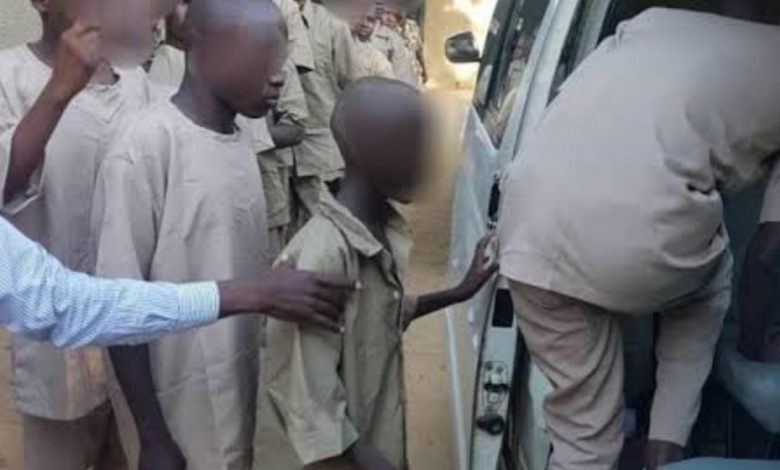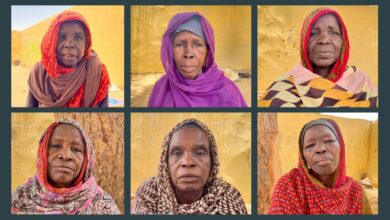
At least seven men and boys have died with several others suffering from unlawful detention and forced labour under the Federal Government’s ‘Safe Corridor’ programme, Amnesty International reports.
The organisation raised alarm in its report released on Wednesday titled, ‘We Dried Our Tears: Addressing the toll on children of Northeast Nigeria’s crisis’.
Amnesty International notes that while the overall idea behind the ‘Safe Corridor’ programme has good intentions, the execution has led to several human rights violations.
It said, “At least seven men and boys have died at Safe Corridor, while around 270 people have completed the programme and been released to date.
“Some of those who died may have had pre-existing health complications due to the grossly inhumane conditions at Giwa, but the health care provided at ‘Safe Corridor’ appears to have been inadequate, contributing to at least some deaths,” Amnesty International reported.
In 2016, Nigeria launched Operation ‘Safe Corridor’, a demobilization, disassociation, reintegration, and reconciliation (DDRR) programme coordinated by the Defence Headquarters, in part to persuade Boko Haram members to surrender.
The programme brings men and boys detained by the military to another detention facility outside Gombe, where they must undergo vocational training, religious instruction, and other activities meant to start a process of reintegration.
According to Amnesty International, although the men and boys are told the programme will last six months, most detainees have been held for 13 to 19 months.
‘Safe Corridor’ receives financial and technical support from, among others, the European Union, UK, US, and International Organization for Migration (IOM), in part because it is a rare area in which the Nigerian military has provided some transparency and access.
The organisation notes that the programme includes positive elements, including adult education and psychosocial counselling described favourably by people formerly held there.
It added that the conditions are also significantly better than at other military-run detention facilities, like Giwa and Kainji.
However, Amnesty International said that “overall, ‘Safe Corridor’ replicates the military’s wider violations.
“For almost everyone held there to date, it amounts to unlawful detention.
“Many people there are not former fighters who committed crimes, much less were charged or convicted of any crime, but instead farmers who lived under Boko Haram control and escaped—only to be detained unlawfully for years,” it said.
Amnesty International added that there appear to be woefully inadequate safety standards in the vocational training departments.
It reports that in one department, men and boys use sodium hydroxide—a highly corrosive substance—to make liquid cleaner and they were, for a while, not given protective equipment.
As a result, some have been reported to suffer serious injuries to their hands, resulting in scarring.
It noted that although the military eventually provided rubber gloves, it fell short of the protective gear needed.
Amnesty International added that the vocational work may also amount to forced labour, since few, if any, of the men or boys in ‘Safe Corridor’ are held there pursuant to a criminal conviction.
At ‘Safe Corridor’, the detained men and boys are promised support for establishing a business once they are released.
Of the 15 former ‘Safe Corridor’ detainees interviewed by Amnesty International in December 2019 and January 2020—between one and 15 months after they were released—only two had actually received such support.
The organisation explained that they are often in a challenging position as many people in their communities believe they have received significant financial support for “being” Boko Haram, yet no such support had been given and many were never affiliated in the first place.
Many wondered why they fled Boko Haram-controlled areas.
While giving recommendations, Amnesty International said that if the ‘Safe Corridor’ is to meet its potential as a programme to reintegrate into society former Boko Haram members in detention, it must be fundamentally re-shaped.
It said, “there must be a fair judicial process for deciding who is to be detained so that those who reach ‘Safe Corridor’ are there for a valid, lawful reason and best stand to benefit.
“It must also be only one aspect of a comprehensive rehabilitation and reparations effort under DDRR and beyond.
“Such efforts must benefit other individuals, including victims of crimes by Boko Haram and by the military as well as people coming out of Boko Haram-controlled areas who should never be detained, including former members or supporters not convicted of any crimes as well as civilians fleeing such areas.
“They must also ensure far greater access for women and girls, who are marginalized by existing programmes, including Safe Corridor; and involve much better community consultation and engagement,” the organisation said.
Meanwhile, in February, The Minister of Humanitarian Affairs, Disaster Management and Social Development, Hajiya Sadiya Umar Farouq said that the Federal Government was ready to partner with Operation Safe Corridor, (OPSC).
Farouq commended the efforts and initiatives of Operation Safe Corridor noting that it’s a very important operation in addressing the challenges of insecurity and insurgency in the Northeast.
“It is a very important programme for the ministry, one of the mandates of the ministry is to focus on the early recovery aspect of the North-East region and one of such components of early recovery is re-integration, rehabilitation of these affected communities and the repentant Boko Haram Insurgents” she stated.
Support Our Journalism
There are millions of ordinary people affected by conflict in Africa whose stories are missing in the mainstream media. HumAngle is determined to tell those challenging and under-reported stories, hoping that the people impacted by these conflicts will find the safety and security they deserve.
To ensure that we continue to provide public service coverage, we have a small favour to ask you. We want you to be part of our journalistic endeavour by contributing a token to us.
Your donation will further promote a robust, free, and independent media.
Donate Here




